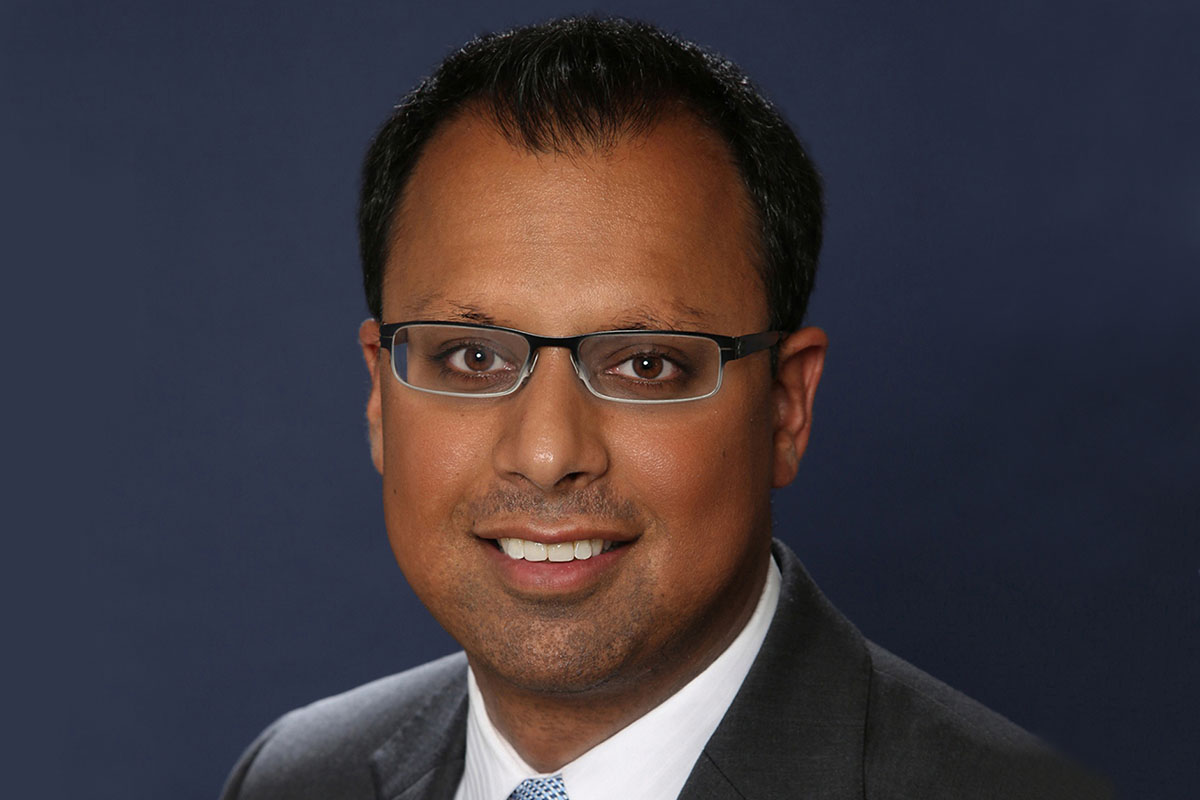Institutional Investor was proud to recognize leaders within the allocator community for their outstanding contributions to portfolio development at the second annual AlphaEdge Recognition Dinner. Prior to the event, we sat down with Anupam Kathpalia, CFA, CAIA, recognized in the category of Next Generation Recognitions.
Anupam is a Director within the Investments Office at Memorial Sloan Kettering Cancer Center, which he joined in December 2015. He serves as a generalist across asset classes, helping to oversee the institution’s long-term investment assets and pursue its mission of ending cancer for life. Prior to joining MSK, Anupam held various roles in investment management, including his roles at Hall Capital Partners and Stamos Capital Partners.
He first joined the healthcare organization in December 2015 as an Investment Associate, before almost three years as Investment Manager, and then two as Associate Director. In May 2024, MSK promoted him to Director.
The following has been edited for length and clarity.
What is the biggest challenge facing the industry today?
 One of the biggest challenges is the uncertainty of the macro environment, and we’re in a really unique regime where historical paradigms don’t fit. We’re in a backdrop of deglobalization, rising geopolitical conflicts, declining demographics (Four of the top five global economies have aging populations), and higher tail risks that increase uncertainty and challenge prospects for long-term returns.
One of the biggest challenges is the uncertainty of the macro environment, and we’re in a really unique regime where historical paradigms don’t fit. We’re in a backdrop of deglobalization, rising geopolitical conflicts, declining demographics (Four of the top five global economies have aging populations), and higher tail risks that increase uncertainty and challenge prospects for long-term returns.
At the same time, nonprofits depend on their investment portfolio returns to support their operating budgets and mission. Therefore, how do the world’s most important institutions invest in a backdrop of challenging economic forces and uncertainty to support their missions, coupled with greater market efficiencies and less obvious ways to generate alpha? A lot of institutions seem to be going out on the risk, illiquidity, and complexity curves to meet their return objectives, which may might not pan out well over the long-term.
What part of the portfolio are you most excited about?
I continue to be excited by U.S. early-stage venture. There’s a number of themes, including technology, AI, biotech, and government and defense, and the intersection of all of the above. I know U.S. early-stage venture is not the most original idea, but our country has the best institutions, technology, and talent, and we have the duration of capital to support long-term secular innovation. The U.S. has its share of challenges, but the pace of innovation is so rapid, and we’re excited about backing next generation technology and entrepreneurs early in the journey.
Early-stage venture capital managers exhibit persistence in returns, so the top-tier funds sustain access to the best entrepreneurs and companies. We certainly worry about the frothiness from a low-interest rate environment, especially deals done in 2021, but going forward, the best entrepreneurs should exhibit capital discipline and can set the trend for what’s going to be the next cutting-edge technology. I’d say across the board, whether it’s AI, biotech, or government and defense, there are so many areas ripe for disruption, and it’s not siloed into one particular area: It’s across a wide range of different themes.
Who was your mentor and what made you get into this industry?
Ken Langone is an amazing role model; he is a patriot, a capitalist, and an American business hero, in particular the amazing job he’s done with Home Depot. He’s all about making the most of opportunities, cultivating relationships, working hard, being a team player, and treating people well. He wrote a book titled, “I Love Capitalism! An American Story,” and it’s one of my favorites.
Taking this job was a no-brainer. Our mission is to end cancer for life, and it’s the mission orientation that drew me to MSK. Every day we are motivated by the mission and impact, knowing the hard work is towards better patient outcomes. I’d also answer that question from an investment perspective: We have a great team, culture, and investment committee; we’re all generalists and retain flexibility to pursue the most compelling investments across a wide range of opportunity sets; and all of this is in pursuit of ending cancer for life.
If you weren’t in this industry, what would you be doing today?
I would be an oncologist. Two million new cases of cancer are estimated to be diagnosed in the U.S. in 2024, unfortunately a record high, and cancer is one of the leading causes of death worldwide. We’re making progress, but still have a long way to go.
Colorectal cancer is now the number one cause of cancer death for men under 50 and number two cause of cancer death in women of the same age group. Colorectal cancer is rising among the young population and screening early is important; ages 40 to 45 is the new 50 for screening.
What is the one actionable thing that you’d like to change about the industry?
Transparency continues to remain a challenge, and that’s been the case for many years. The industry seems to be going into the direction of a double whammy of greater complexity and less transparency, across a range of issues including fees and expenses, personnel changes, investment activity, appropriate disclosures, and conflicts of interest. We depend on our managers to help us pursue our mission and a good partnership calls for transparency and humility.
By legal definition, we are limited partners, but I’ve never been a fan of that term: I like to think about partnerships with managers as inclusive, not limited.
For more content of Investor Week, visit the group here.
To discuss the content of this article or gain access to like content, log in or request membership here.

